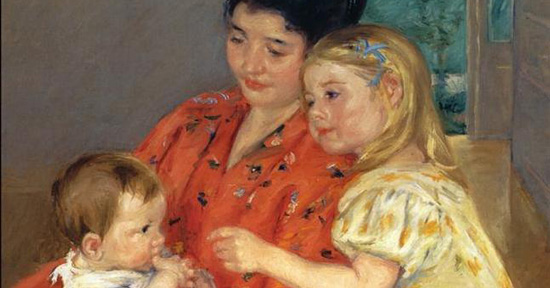If Marriage Is the Sanctuary of Life, What Happens When That Sanctuary Is Redefined?

The U.S. Supreme Court has finally ruled on the constitutionality of same-sex marriage, invoking the Fourteenth Amendment to require every state to license marriages between people of the same sex.
Over the years, gay activists have convinced some of the public that the inclusion of same-sex couples in legal marriage would not harm a vital social institution. But scant attention has been paid to how the redefinition of marriage will shape our legal system's treatment of nascent human life and the rights of natural parents.
Can we continue to become a more pro-life nation if the sanctuary that once welcomed children into the world changes in ways we do not yet fully understand?
During oral arguments for Obergefell v. Hodges and three other same-sex marriage cases, John Bursch, the lawyer representing the states, which were seeking to uphold laws that defined marriage as a union of one man and one woman, emphasized that legal marriage has been understood to protect children by formalizing their biological ties to their natural parents.
"The state doesn’t have an interest in love and emotion at all,” Bursch said. “It’s about binding children to their biological moms and dads.”
But Justice Sotomayor offered a response that clarified her preference for the gender-neutral and DNA-free term, "parent."
"No, I think they should be bound to their parent, because there are a lot of adopted children and they are not . . . thinking of biological moms and dads," said Justice Sotomayor.
Perhaps she sought to defend the rights and experience of adoptive parents, but her response reflected a pattern in legal arguments that uphold the right to same-sex marriage, while rejecting an understanding of marriage and family life that is anchored in the biology of sexual complementarity.
Indeed, the severing of marriage from procreation poses additional questions that have barely registered with the public. For example, why should the child have a right to grow up in a home with his or her biological mother and father when other would-be parents stand at the ready? And why should our legal system link the rights and responsibilities of the spouses to the care and protection of children, when childrearing is no longer the point of marriage?
Writing in The Human Life Review, Michael Tenaglia helps us understand why same-sex marriage should be a pro-life issue, and he does so, in part, by highlighting the dismissive treatment of procreation and biological ties in legal opinions that have advanced same-sex marriage as a constitutional right.
For example, when U.S. District Court Chief Judge Vaughn Walker issued his 2010 decision that overturned California's Prop 8, he
wrote not only that gender, the presence of a mother and father, and the biological basis of procreation were irrelevant to the question of marriage and child rearing, but that it was indeed irrational, from a constitutional perspective, to think they were relevant....
Immediately and inescapably, new human life is removed from treatment as a member of the human family with biological links to—and claims of right on—a mother and father, and instead becomes the object of the asserted rights of unrelated adults. The historic understanding of family law that considered, at least as a prima facie matter, biological links to the child, is now seen as irrational.
This helps explain why same-sex marriage poses a complex challenge that can't be ignored by the pro-life community. Indeed, Tenaglia predicts that the logic of this view of marriage will end with the abolishment of
the UN Convention on the Rights of the Child, for no child can have the right to know his or her mother or father. And if no child has a claim on its biological parents, and its parents’ relationship to it are judged not as pre-legal, natural rights but as malleable by acts of positive law, then the value of that life itself becomes subject to that law rather than prior to it.
It will take time to explain the connection between a new constitutioal mandate and shifting legal and cultural expectations regarding the rights of natural parents and their children. It will also take time before our courts begin to litigate such matters in ways that embrace the logic of "marriage equality".
Writing in The Public Discourse, Adam MacLeod reports in a June 25 post that family law in Massachusetts, which embraced marraige equality more than a decade ago, still distingishes between same-sex and heterosexual marraige.
"Massachusetts law continues to presume that 'a man' who is married to the biological mother of a child is the child’s 'father,' MacLeod notes.
Meanwhile, "Massachusetts courts have ruled that, in a woman-woman 'marriage,' the non-biological mother is presumed to be the second parent if both the biological father and the non-biological mother consent, as in the case where the biological mother is artificially inseminated with the second woman’s knowledge."
MacLeod concludes: "True 'marriage equality' has not been achieved" in Massachusetts, "and it never will be, as long as states maintain an interest in enforcing the duties that parents owe to their children."
With the legalization of same-sex marriage, we must pray that remains the case.
And now that "marriage equality" has become the law of the land, the pro-life community must find a way to share its values and knowledge more broadly in a way that will intend no disrespect toward the families of same-sex couples.
Pro-lifers must also find a way to reach out to younger Americans. Many of them now understand the horror of abortion, but they are also likely to support "marriage equality" as a more inclusive, tolerant position. What will they do if they are asked to choose, and will they be forced to choose before long?
Tenaglia suggests we can find answers to these problems in the struggles and victories of the pro-life movement, which has returned from many decades in the wilderness with renewed commitment, tactics and hope.













